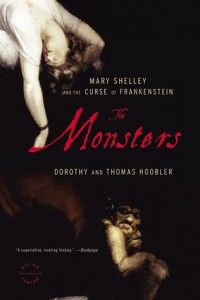 Title: TransAtlantic (Goodreads)
Title: TransAtlantic (Goodreads)
Author: Colum McCann
Published: Bloomsbury, 2013
Pages: 320
Genres: Historical Fiction, Literary Fiction
My Copy: ARC from Netgalley
Buy: Amazon, Book Depository, Kindle (or visit your local Indie bookstore)
The National Book Award-winning author of Let the Great World Spin by Colum McCann comes an astonishing new novel, TransAtlantic. Through a series of narratives that span 150 years and two continents comes this magnificent and somewhat ambitious novel. From the first TransAtlantic flight from Newfoundland to the west of Ireland to the American senator crossing the ocean in search for lasting peace in Ireland, this is part fiction part historical literary achievement.
I’ve often struggled with the novels that are made up from a collection of short stories as well as the ones that blend fact and fiction. A Visit from the Goon Squad was a widely talked about book for having a chapter dedicated to a different person but I didn’t think much of it, while The Imperfectionists did the same thing a whole lot better. Now we have TransAtlantic, which I’m not sure if it was the fact that I read this while flying but this really stands out about the rest. Then you have these novels that draw a lot from history. A Treacherous Likeness was a disaster; Z: The Novel of Zelda Fitzgerald I thought missed too much of her later years; Burial Rites was the exception but only because it was such an obscure historical event I didn’t know about it. Yet TransAtlantic seems to be standing out above these novels as well.
The first chapter looks at the incredible story of the first flight across the Atlantic in 1919, an epic feat in human history by all accounts. I felt like Colum McCann handled this so masterfully that I wasn’t concerned about the historical facts, I was absorbed in the tension facing these two men as they battle against the odds to make it.
Yet this isn’t just about the history of flight across the Atlantic Ocean, this focuses a lot on Ireland. McCann is an Irish born author so you expect to see Irish history within this book but he is also coming from a journalist background and it really shows. This novel takes a look at slavery and conflict within Ireland making this an interesting look at the significance of TransAtlantic flight.
Colum McCann weaves a tapestry of rich and powerful short stories that lavish us with this literary piece. From the get go I felt drawn into the novel, the short sentences seem to keep me reading at such a fast pace. While I had to get off one plane and board another half way through this book, I was so sucked in I felt like asking the pilot to take the long way just so it wouldn’t interrupt my reading.
Key historical figures within TransAtlantic include Frederick Douglass, John Alcock and Teddy Brown and George Mitchell. The novel both encouraged me to learn more about these people and while giving me a new insight of both TransAtlantic flight and historical events within Ireland. On reflection I can pinpoint exactly what worked well and what didn’t, the different elements of this novel all seemed to work together to hide whatever flaws I was looking for.
TransAtlantic was both an addictive read and a stunning piece of literary fiction. While it wasn’t perfect, I’m not sure how to fault this book, I picked the right book for the right time and it was an enjoyable experience. I’ve not read Colum McCann before, in fact I hadn’t heard of him, but you can be sure I’ll be tracking more of his novels down.

 Title: The Strange Case of Dr. Jekyll and Mr. Hyde (
Title: The Strange Case of Dr. Jekyll and Mr. Hyde ( Title: The Hunter (
Title: The Hunter ( Title: Alex (
Title: Alex ( Title: The Imperfectionists (
Title: The Imperfectionists ( Title: The Yearning (
Title: The Yearning ( Title: Mrs Dalloway (
Title: Mrs Dalloway ( Title: Crooked Letter Crooked Letter (
Title: Crooked Letter Crooked Letter ( Title: Invitation to a Beheading (
Title: Invitation to a Beheading ( Title: The Monsters (
Title: The Monsters (